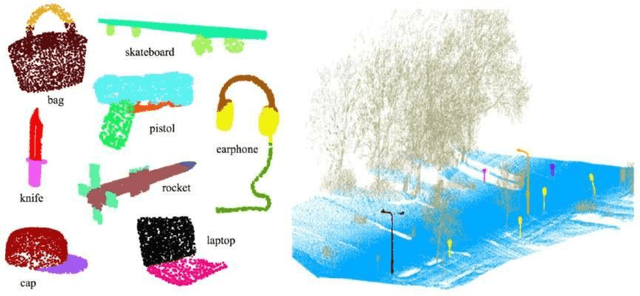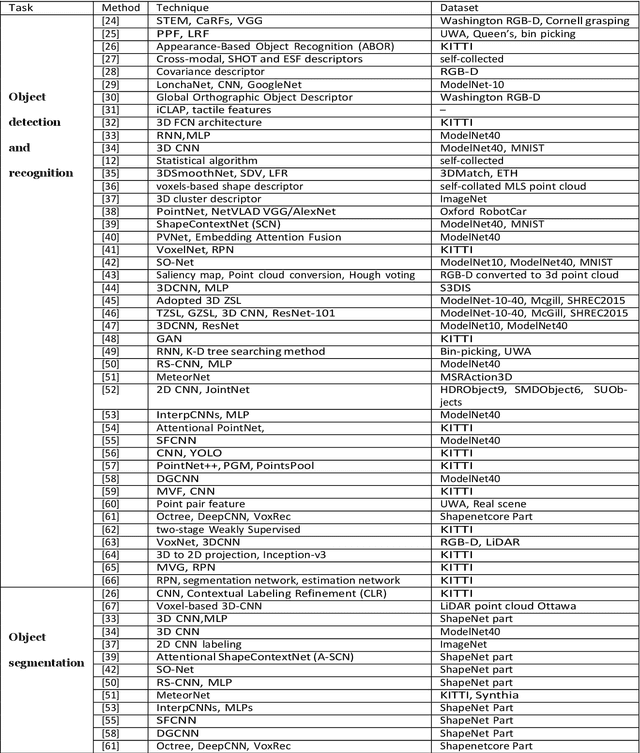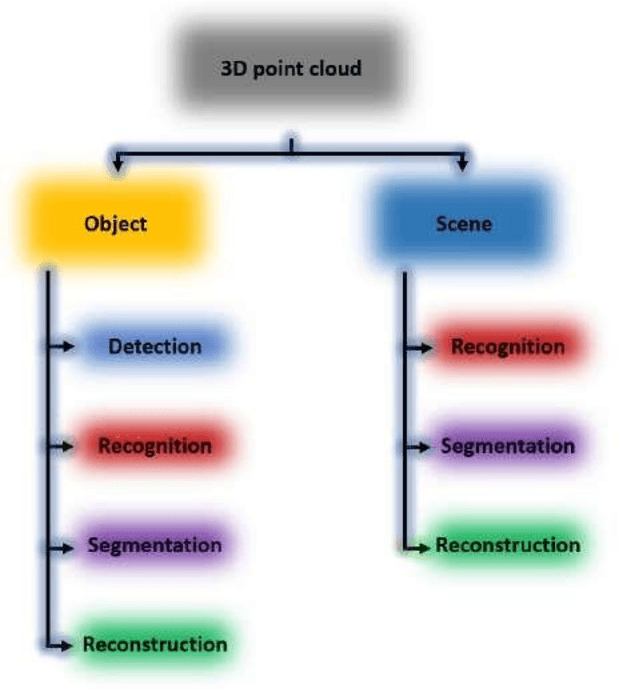3D objects and scenes classification, recognition, segmentation, and reconstruction using 3D point cloud data: A review
Paper and Code
Jun 09, 2023



Three-dimensional (3D) point cloud analysis has become one of the attractive subjects in realistic imaging and machine visions due to its simplicity, flexibility and powerful capacity of visualization. Actually, the representation of scenes and buildings using 3D shapes and formats leveraged many applications among which automatic driving, scenes and objects reconstruction, etc. Nevertheless, working with this emerging type of data has been a challenging task for objects representation, scenes recognition, segmentation, and reconstruction. In this regard, a significant effort has recently been devoted to developing novel strategies, using different techniques such as deep learning models. To that end, we present in this paper a comprehensive review of existing tasks on 3D point cloud: a well-defined taxonomy of existing techniques is performed based on the nature of the adopted algorithms, application scenarios, and main objectives. Various tasks performed on 3D point could data are investigated, including objects and scenes detection, recognition, segmentation and reconstruction. In addition, we introduce a list of used datasets, we discuss respective evaluation metrics and we compare the performance of existing solutions to better inform the state-of-the-art and identify their limitations and strengths. Lastly, we elaborate on current challenges facing the subject of technology and future trends attracting considerable interest, which could be a starting point for upcoming research studies
 Add to Chrome
Add to Chrome Add to Firefox
Add to Firefox Add to Edge
Add to Edge